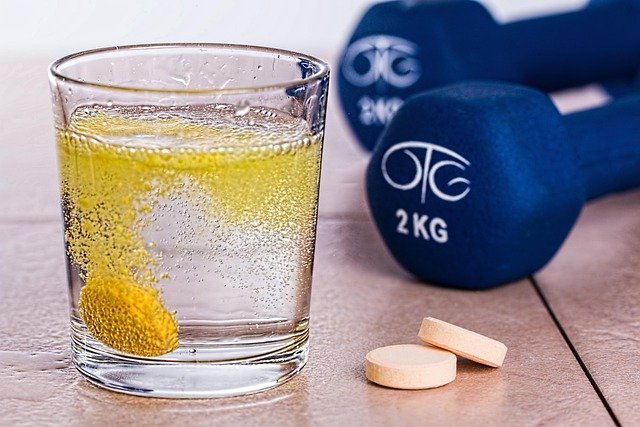Understanding Bone Density Treatment Options and Nutritional Support
Bone density treatment encompasses various medical interventions and lifestyle modifications designed to strengthen bones and prevent fractures. As we age, maintaining adequate bone density becomes increasingly important for overall health and mobility. Modern treatment approaches combine medical therapies with nutritional strategies and physical activity to optimize bone health outcomes.

Bone density treatment represents a comprehensive approach to maintaining and improving skeletal health throughout life. Medical professionals utilize various diagnostic tools and therapeutic interventions to address bone loss conditions such as osteoporosis and osteopenia. These treatments range from prescription medications to lifestyle modifications that support long-term bone health.
What Calcium-Rich Foods Promote Bone Strength Most Effectively
Calcium serves as the primary building block for bone tissue, making dietary sources essential for maintaining bone density. Dairy products like milk, yogurt, and cheese provide highly bioavailable calcium that the body readily absorbs. Dark leafy greens such as kale, collard greens, and bok choy offer excellent plant-based calcium sources. Sardines and canned salmon with bones deliver both calcium and vitamin D, creating a powerful combination for bone health. Almonds, sesame seeds, and tahini provide additional calcium along with healthy fats that support nutrient absorption.
How Daily Nutrition Plans Support Senior Bone Health
Seniors require structured nutritional approaches to combat age-related bone loss effectively. A well-designed daily nutrition plan incorporates multiple calcium sources throughout the day, ensuring consistent nutrient availability. Morning meals might include fortified cereals or oatmeal with milk, while lunch could feature leafy green salads with cheese or nuts. Evening meals should emphasize protein sources that contain phosphorus, working synergistically with calcium for bone formation. Vitamin D supplementation often becomes necessary for seniors, as skin synthesis decreases with age and dietary sources remain limited.
Why Combining Diet with Gentle Exercise Enhances Stability
Physical activity stimulates bone formation through mechanical stress, making exercise an essential component of bone density treatment. Weight-bearing exercises like walking, dancing, and stair climbing encourage bone cells to build new tissue. Resistance training using light weights or resistance bands helps maintain muscle mass while supporting bone strength. Balance exercises such as tai chi or yoga reduce fall risk while promoting coordination. The combination of proper nutrition and gentle exercise creates a synergistic effect, where dietary nutrients provide building materials while physical activity signals the body to utilize these materials for bone construction.
| Treatment Type | Provider/Service | Cost Estimation |
|---|---|---|
| DEXA Bone Scan | Radiology Centers | $150-$300 |
| Bisphosphonate Medications | Pharmacies/Insurance | $20-$200/month |
| Nutritional Counseling | Registered Dietitians | $100-$200/session |
| Physical Therapy | Licensed Therapists | $75-$150/session |
| Calcium Supplements | Retail/Online | $10-$30/month |
Prices, rates, or cost estimates mentioned in this article are based on the latest available information but may change over time. Independent research is advised before making financial decisions.
Medical Interventions for Bone Density Enhancement
Pharmaceutical treatments for bone density focus on either slowing bone breakdown or promoting new bone formation. Bisphosphonates remain the most commonly prescribed medications, working by inhibiting cells that break down bone tissue. Hormone replacement therapy may benefit postmenopausal women experiencing rapid bone loss. Newer medications like denosumab and teriparatide offer alternative mechanisms for patients who cannot tolerate traditional treatments. Regular monitoring through bone density scans helps healthcare providers adjust treatment protocols based on individual response and progression.
Lifestyle Factors That Impact Treatment Success
Successful bone density treatment extends beyond medical interventions to encompass comprehensive lifestyle modifications. Smoking cessation becomes crucial, as tobacco use significantly impairs bone formation and healing. Alcohol consumption should remain moderate, as excessive intake interferes with calcium absorption and bone cell function. Adequate sleep supports hormone production necessary for bone metabolism. Sun exposure or vitamin D supplementation ensures proper calcium utilization. Regular medical follow-ups allow for treatment adjustments and early detection of complications.
Bone density treatment requires a multifaceted approach combining medical expertise, nutritional awareness, and lifestyle commitment. The integration of calcium-rich foods, structured nutrition plans, and gentle exercise creates a foundation for long-term bone health success. Working closely with healthcare providers ensures that treatment strategies remain appropriate for individual needs and health conditions. Early intervention and consistent adherence to treatment protocols significantly improve outcomes and reduce fracture risk throughout the aging process.
This article is for informational purposes only and should not be considered medical advice. Please consult a qualified healthcare professional for personalized guidance and treatment.




